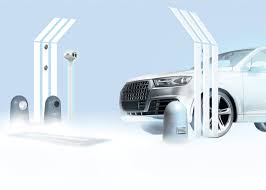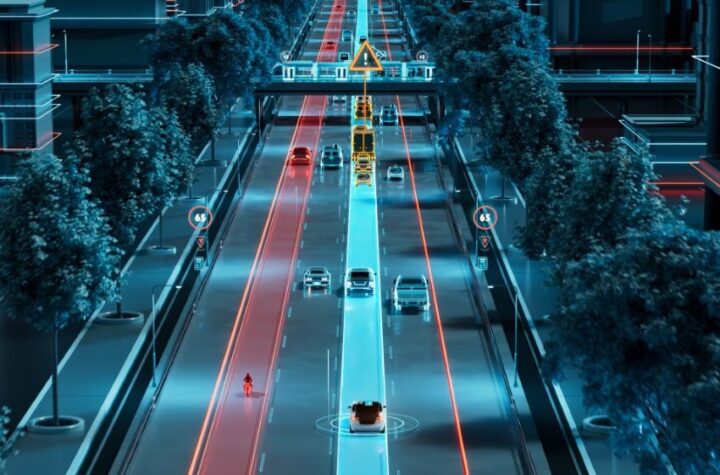
Automated vehicle inspection systems at dealerships and service garages can help car owners avoid accidents and save lives by detecting hard-to-find tire and underbody problems.
More than 45 percent of the respondents in a recent national survey of service personnel at car dealerships and repair garages by UVeye indicates that automated tire-inspection systems would more accurately pinpoint serious problems and help ensure customer safety.
Automated camera-based underbody inspections also have proven to be much faster and more accurate in finding critical safety problems related to brake, fuel and steering systems.
While more than 80 percent of the garages surveyed offer routine low-cost spring or winter vehicle checks, most visual inspections are done in less than 15 minutes and are able to identify safety-related issues less than 40 percent of the time.
The survey indicated that nearly 60 percent of all tire checks are based entirely on a visual shop-floor inspection. Furthermore, only six percent of the service departments surveyed today rely solely on automated systems. UVeye, an Israeli-based supplier of high-technology inspection systems, estimates that even fewer underbody inspections are automated.
Drive-through camera-based inspection systems are faster and can detect safety defects more accurately, according to Amir Hever, UVeye’s CEO. Using artificial intelligence and machine-learning technologies, a tire-inspection system can identify within seconds a tire’s brand and technical specifications, while capturing pressure, tread depth, sidewall damage and other potential safety problems.
An automated underbody inspection can take less than 90 seconds to check for a wide variety of problems as well. Multiple high-resolution cameras are able to generate thousands of images per second to pinpoint missing components, damage and other safety-related issues much more accurately than the human eye.
“While most service departments have check lists to help guide technicians and customer service personnel through an inspection process, there’s no industrywide standard for identifying serious vehicle safety issues,” Hever points out. “The development of automated inspection technology removes inconsistencies and human error from the equation.”
More than 6,700,000 accidents and 36,000 fatalities were recorded on U.S. roads and highways in 2019, according to the U.S. Department of Transportation. DOT studies have shown that more than 30 percent of all vehicle accidents are caused by some form of mechanical failure. Tire and wheel problems are the leading component cause of highway accidents accounting for more than 40 percent of the total, followed by brake failures at 25 percent.
Hever notes that while tires continue to be the leading vehicle-component cause of highway accidents, undercarriage damage also poses a significant risk for car owners since it has a much higher probability of going unnoticed.
UVeye has developed a variety of automated inspection systems that utilize unique combinations of proprietary algorithms, cloud architecture, artificial intelligence, machine learning and sensor fusion technologies to help standardize and speed up most previously manual inspection processes.
The company began installing contact-free vehicle-inspection systems at new and used-car dealerships and used-car auctions in the U.S. last year.
“Contact-free inspection systems are dramatically changing how auto dealers, major fleet operators and used-vehicle auctions inspect vehicles,” says Hever. “They also can play an important role in reducing traffic accidents and fatalities caused by vehicle equipment failures.
“These systems make it possible to automatically inspect any type of vehicle, while guaranteeing much higher quality standards for processes that once used to be handled manually.”
UVeye provides inspection systems for use in homeland security applications and the auto industry. The company’s solutions can be used throughout the lifecycle of a vehicle, from supplier and OEM assembly lines to new-car showrooms, dealership service departments and used-vehicle auction sites. Its inspection platforms add a layer of efficiency and enable new data insights for customers throughout the automotive value chain.
About UVeye
UVeye is setting new standards for vehicle inspection in the automotive and security industries by changing basic approaches to vehicle inspection through automated processes, improved accuracy and standardized inspection systems.
The company’s drive-through systems can detect any external or mechanical flaw and identify anomalies, modifications or foreign objects from all sides of a vehicle. The scanning process is complete within a matter of seconds and can be used throughout the entire lifecycle of a vehicle.
UVeye inspection technology currently is used in a variety of automotive applications, from vehicle manufacturing and assembly lines to shipping and logistics, dealership service departments, used-vehicle auctions and major fleet operations.
Initially developed for use by the security industry to detect weapons and contraband, today the technology is being employed in the automotive industry to identify leaks and scratches, as well as damage to tires, brakes, exhaust-system components and other potentially hazardous mechanical issues.
UVeye has more than 100 employees and already has installed vehicle inspection systems at assembly plants, vehicle auction sites and dealerships around the world. The company has offices in Tel Aviv, Cleveland and New York, as well as locations in Japan and Germany.
Additional information is available at www.uveye.com




More Stories
TomTom’s Orbis Maps with 3D Lane geometry set new standards for mapping precision
Accelerating The Development of Hydrogen Vehicles & Infrastructure – Europe’s Biggest Players Meeting at Premier Event
Automotive IQ Announces the 15th Annual Automotive Functional Safety Week 2025